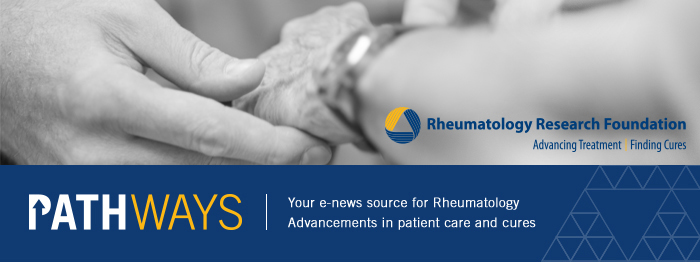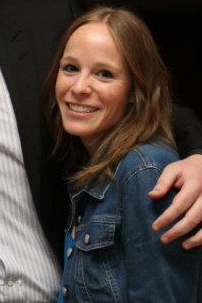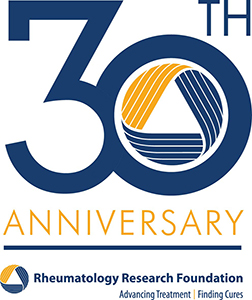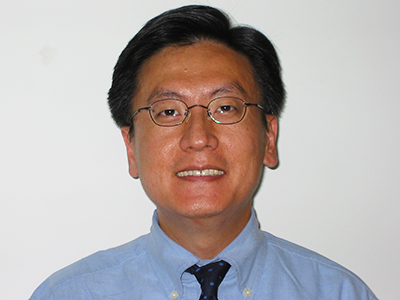Pathways

Volume 4 • Issue 3 • March 2015 • Rheumatology Research Foundation
Turning Pain into Passion

Ali Berger |
In November 2012, after months of tests, doctors’ appointments and dead ends, Ali Berger was diagnosed with rheumatoid arthritis at the young age of 27.
Though living in New York City, Ali returned to her hometown of Chicago to seek a rheumatologist closer to her family, and it was there that she got her diagnosis. When Ali recounts what it was like looking for answers while suffering from undiagnosed pain and exhaustion, she says, “It was a nightmare.” For Ali, the nightmare continued until she was introduced to Eric Ruderman, MD, her rheumatologist and new partner in the pursuit for relief.
Now, more than two years later, Ali is managing her disease and leading an active life, an improvement she attributes to early intervention and a strong relationship with her rheumatologist. Ali still lives in New York City and flies home to Chicago at least once a year to consult with Dr. Ruderman. “A relationship with a rheumatologist isn’t the typical doctor/patient relationship. I’ve seen a lot of doctors in this process. Dr. Ruderman took me under his wing and supported me. He was compassionate, and if it weren’t for him, I wouldn’t be so positive about my health.”
As treatments took effect and symptoms began to ease, Ali’s boyfriend recommended she look into the Rheumatology Research Foundation, an organization he’d heard about and thought could provide an outlet for her new-found passion for raising awareness of chronic disease and what can be done to help. It wasn’t until Ali connected with the Foundation that she discovered the “quarterback” of her care, Dr. Ruderman, was already an active supporter of the organization. She says that was all the information she needed.
Since then, Ali has become a champion of the Rheumatology Research Foundation, working with the Foundation to share the importance of funding critical rheumatology research and building a more robust workforce to provide people across the country better access to treatment. Based on her own experience, Ali is passionate about patient access. “No child or adult should ever live in a city without access to a rheumatologist. But unfortunately, that’s what happening. Rheumatic disease is growing at such a fast rate, it scares me.” Ali has redirected her career to include supporting people with rheumatic disease, as well as working full time in public relations.. She is now chronicling her own experience in a book and is a regular contributor on RheumatoidArthritis.net.
 |
This year marks the 30th anniversary of the Rheumatology Research Foundation! To celebrate 30 years of advancing treatment of rheumatic diseases, the Foundation will profile 30 people who have made a significant impact in the world of rheumatology through their work with the Foundation. Please feel free to email us if you would like to contribute a story about how the work of the Foundation has directly impacted your life, or if you would love an opportunity to share your story or brag about your rheumatologist. We would love to hear from you!
30 Over 30: S. Sam Lim, MD, MPH

S. Sam Lim, MD, MPH |
Shortly after joining the faculty at Emory University, S. Sam Lim, MD, MPH, received a Foundation award that supported a clinical research project focused on rheumatoid arthritis. Dr. Lim reflects on how he has been affected by the support early in his career and the Foundation’s impact on the field of rheumatology.
Q: How did you first hear about the Foundation’s grant opportunities?
A: When starting up, I think all junior faculty know about the looming goal of bringing in grant money. For most physicians, it’s one of the first times in our lives we’ve had to deal with that process and it’s daunting. So it was comforting to know our professional organization had another layer of potential support. The efforts of the Foundation were so pervasive, so everyone kind of knew about their work.
Q: What did receiving a grant mean to you and your career?
A: On a practical level, it meant I was able to better pursue my career, with financial resources for salary and things, but it was a deeper sense of validation that meant the most to me. When you are relatively young and struggling to differentiate yourself from your peers and even your mentors, it can be difficult and that award really gave me tremendous confidence to push forward and know I was going in the right direction in making a difference.
Q: What is the greatest impact you’ve seen the Foundation make in the last 30 years?
A: There’s no question the Foundation has kept the pipeline of promising investigators open during very difficult times with limited resources. If you look at the economy of medicine with educational debt and less support for junior faculty in terms of resources and greater stress on academic centers, there’s more uncertainty than ever for those pursuing research careers. In parallel, I think there’s a heightened awareness of the research community’s vulnerability among all rheumatologists, even among those in private practice, and it’s heartwarming to see them invest in the Foundation to keep that pipeline open. The Foundation has really galvanized the clinical community in a distinct and meaningful way that I haven’t seen in other organizations.
Q: What do you hope to see the Foundation achieve over the next 30 years?
A: I’d like to see the continued trajectory and stability they have had. Perhaps, even more attention to medical students and allied health professionals because that is where I think the important seeds are planted to develop career interests. So, if we want to maintain a pipeline of the best and the brightest, we need to pay more attention to that level. I also think paying attention to the changing landscape of health care, with the reliance on other allied health professionals, will be important.
Q: What do you wish people knew about the Foundation?
A: I think people should know what an excellent steward of donations the Foundation is and how investments in research have led to improved patient care. I’d also say I wish people knew about the wonderful staff behind the scenes at the Foundation.
Q: How does the Foundation contribute to a strong and capable workforce?
A: Ensuring a vibrant research and academic community benefits everyone. Having that contact with students is really key to ensure the best and brightest choose rheumatology, whether that’s research or private practice. And I think – like I said earlier – most rheumatologists in private practice understand that, as well as the academics.
Q: Why is it important for members of the rheumatology community, including doctors and patients, to support the Foundation?
A: I think ensuring a vibrant pool of rheumatology researchers benefits us all, like I said. And encouraging the best and brightest into rheumatology means the field is consistently on the cutting edge; things like biologic therapies is an example. We are the field that truly understands the complexities of the immune system and how it interacts with a whole spectrum of patients, as well as psychosocial factors that affect patients and the therapeutics and the health care system. It’s a really 360 degree system. And if you add the complexity of the medical system on top of that, it’s important that rheumatologists are the ones driving innovation.